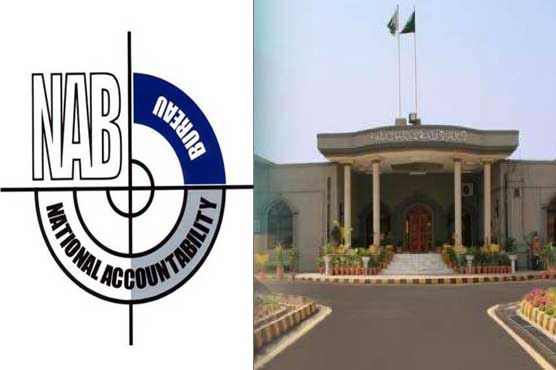PML-N moves IHC over NAB Amendment Ordinance

Constitution only allows promulgation of ordinances in extraordinary circumstances
ISLAMABAD (Dunya News) – Pakistan Muslim League-Nawaz (PML-N) MNA Mohsin Shahnawaz challenged NAB Amendment Ordinance in Islamabad High Court (IHC) and stated that constitution only allows promulgation of ordinances in extraordinary circumstances.
Petitioner said that government is issuing ordinance despite the fact that this matter is underway in court. He argued that it is unconstitutional to issue ordinances when parliament exists.
In plea of Mohsin Shahnawaz it is stated that more than 2500 ordinances have been promulgated in Pakistan and law making is responsibility of parliament so court should seek explanation from government.
Advocate Umer Gillani filled PML-N leader’s application and requested court to issue directions for quick decision of the case.
According to the amendment, the NAB can now only take up cases involving corruption or corrupt practices exceeding an amount of Rs500 million, and no action will be launched against government employees in case of departmental deficiencies.
“Notwithstanding anything contained in this ordinance or any other law for the time being in force, no inquiry, investigation, arrest or proceedings against a government servant, under this ordinance, either as an accused or witness, shall be initiated or conducted by NAB without prior approval of the scrutiny committee,” said a new clause inserted in Section 33-F of the ordinance.
Another amendment barred the accountability watchdog from confiscating property of any public office holder without prior approval of the scrutiny committee.
According to an amendment, “Inquiries and investigations shall stand transferred to the respective authorities or departments which administer the relevant laws of taxation, levies and imposts in question.
“Trials shall stand transferred from the relevant accountability courts to the criminal courts which deal with offences under the respective laws pertaining to taxation, levies and imposts in question.”
Furthermore, another amendment required the NAB chairman to devise a “complaint redressal mechanism for attending complaints against NAB” and present a quarterly report on its performance to the federal government.
In a summary sent by the law ministry to the federal cabinet, the government claimed that the NAB was dealing a large number of inquiries and investigation including handling of mega corruption cases.
“Under the existing regime a number of inquiries have been initiated against the holders of public office and government servants on account of procedural lapses where no actual corruption is involved. This has enhanced NAB’s burden and has also affected working of the federal government.”
It further pointed that the NAB had assumed parallel jurisdiction and was inquiring into matters pertaining to taxation, imposition of levies and interference in the domain of taxation regulatory bodies.
“It is therefore felt necessary to define through the subject amendments the operational domain of NAB,” it added.

